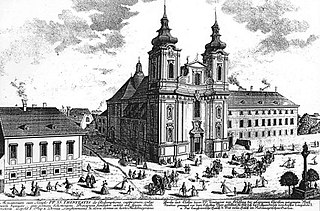 W
WThe Deutsche Messe , D 872, is a hymn-cycle by Franz Schubert written in 1827. Neither a Mass nor strictly speaking German, it was published in Vienna as what it is: Gesänge zur Feier des heiligen Opfers der Messe . It sets a sequence of eight non-liturgical German poems by Johann Philipp Neumann, who commissioned Schubert's music, one or more of which could be used separately during Mass. A ninth hymn, given as an appendix, treats the Lord's Prayer, bringing the length to about 35 minutes when the music is performed, as it often now is, as one big concert work.
 W
WFranz Schubert was an extremely prolific Austrian composer. He composed some 1500 works. The largest group are the lieder for piano and solo voice, and nearly as many piano pieces. Schubert also composed some 150 part songs, some 40 liturgical compositions and around 20 stage works like operas and incidental music. His orchestral output includes a dozen symphonies and several overtures. Schubert's chamber music includes over 20 string quartets, and several quintets, trios and duos.
 W
WMass No. 1 in F major, D 105, is a mass composed by Franz Schubert in 1814. It is scored for two soprano soloists, two tenor soloists, alto and bass soloists, SATB choir, oboe, clarinet, bassoon, 2 horns, violin I and II, viola, and basso continuo. It was the first of Schubert's masses to be performed, and is of the missa solemnis type.
 W
WMass No. 2 in G major, D 167, by Franz Schubert was composed in less than a week in early March 1815 and remains the best known of his three short settings, or missae breves, dating between his more elaborate No. 1 and No. 5. Apart from some passages for soprano, its solistic interventions are modest; Schubert, characteristically, inclines toward a devotional mood. The First Mass had been successfully performed in the composer's parish the year before.
 W
WThe Mass No. 3 in B-flat major, D 324, is a mass composed by Franz Schubert in 1815. It is four soloists, a four-part choiur and orchestra. While by length it could be a missa brevis, its large orchestral force with trumpets, timpani and woodwinds has also led to its classification as a missa solemnis.
 W
WMass No. 4 in C major, D 452, is a mass composed by Franz Schubert in 1816. It was originally scored for soprano, alto, tenor and bass soloists, SATB choir, violin I and II, and basso continuo. It is classified as a missa solemnis.
 W
WMass No. 5 in A-flat major, D 678, is a mass composed by Franz Schubert, completed in 1822. There is no record of a performance during Schubert's lifetime. It is scored for soprano, alto, tenor and bass soloists, SATB choir with divisi, violin I and II, viola, flute, 2 oboes, 2 clarinets, 2 bassoons, 2 horns, 2 trumpets, 3 trombones colla parte, timpani and basso continuo. It is classified as a missa solemnis.
 W
WMass No. 6 in E-flat major, D 950, is a mass composed by Franz Schubert. It is scored for two tenor soloists, soprano, alto and bass soloists, SATB choir with divisi, 2 oboes, 2 clarinets, 2 bassoons, 2 horns, 2 trumpets, 3 trombones, timpani, violin I and II, viola, cello, and double bass. It was Schubert's final setting of the order of Mass, and is classified as a missa solemnis.